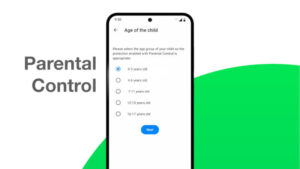Last month I posted an article on why I think Windows Phone 7 will fail to get traction in the already crowded smartphone field. It now appears that others have similar viewpoints. Yesterday, Brook Crothers wrote a blog on cnet , “Microsoft faces Android juggernaut,” in which he expresses a sentiment not too different from mine:
“A killer Microsoft smartphone may always be out of reach. And Microsoft should understand this better than anyone.”
Pretty much what I said, except I’m not so sure Redmond knows this yet.
Crothers goes on to point out that with computing devices of any stripe, consumers and makers alike tend to follow one or two top leaders, and cites Windows and OS X on laptops and desktops, as well as the current dominance of the iPhone and Android on smartphones as examples. Then he offers this sage observation:
“The broader issue is that Redmond is up against the same kind of juggernaut in smartphones that it created (and still maintains) in PCs.”
Wow! I hadn’t thought of that. Or, if I did, I wasn’t paying attention.
For years we’ve been working, to no avail, to loosen Windows grip a bit on the desktop to make room for Linux as a third alternative. With mobile, the shoe is now on the other foot. Apple’s iPhone OS and the Linux distro known as Android are the established players, leaving Microsoft in the position of outsider.
With this observation comes further realizations which might help us in our efforts to gain market share for other open source projects.
Microsoft’s tight grip on the desktop and laptop has little to do with the comparative quality of their product, which we already know. They are the dominant player on the PC simply because they were there first. They may have broken some rules and cheated a bit to have gained their dominance in the first place, but that’s all in the past. They’ve been able to maintain that position simply because they are the incumbent. Even outside of politics, the incumbent has the advantage.
Certainly there are other contributing factors, not the least of which is the amount of money they’ve poured into advertising and such to maintain their position. Then there’s Redmond created FUD, and befuddled users who understandingly had rather stay with what they know, no matter how unsatisfactory their experience, than to leap into the unknown.
The handwriting is on the wall. Unless we do something extremely stupid, Android and other Linuxes will be the dominant force on smartphones for the foreseeable future. If we’re smart, we’ll be able to use this gain on mobile devices to loosen Microsoft’s grip on the desktop.
I’ve said it before, and I’ll say it again. The future of the desktop, like the future of mobile, belongs to a cute little penguin named Tux.
Christine Hall has been a journalist since 1971. In 2001, she began writing a weekly consumer computer column and started covering Linux and FOSS in 2002 after making the switch to GNU/Linux. Follow her on Twitter: @BrideOfLinux



